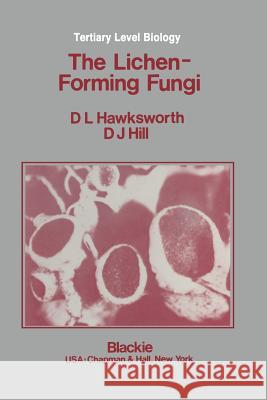The Lichen-Forming Fungi » książka
The Lichen-Forming Fungi
ISBN-13: 9780216916340 / Angielski / Miękka / 1984 / 158 str.
Lichen assocIations include some of the oldest living organisms and represent a major nutritional method adopted by one in five fungi. Major advances in our knowledge of these biologically fascinating organisms have been made in recent years and they now have a great deal to offer to teaching in colleges and universities. In addition to being examples of biotrophic systems, they merit discussion in courses on fungal phylogeny, fungal nutrition, ecology, ecophysiology, biogeography, evolution, chemo- taxonomy, environmental monitoring, and algology. As all aspects of lichenology cannot be treated adequately in a book of this length, we have emphasized topics which we have found to be of particular interest to a advanced undergraduate and postgraduate biologists (or biogeographers) or those contemplating more detailed studies in particular areas. Consequently we have endeavoured to place lichen associations in the broader context of biological and biogeographical teaching. Examples are drawn from many areas of the world, including North America, but it is inevitable that European ones predominate, as lichens there are better known than in other regions. Technical terms are defined when first used, and definitions can therefore be located with the aid of the index. Lichens are not a systematic group and so are not appropriately treated in a groups-orientated programme, but are a major biological phenomenon all too commonly accorded scant attention in university courses.











